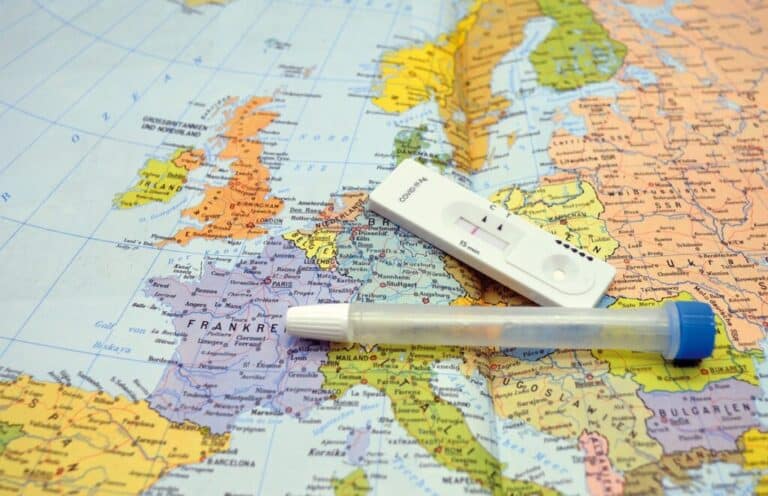You’ve made it to your destination. You completed all the necessary steps and requirements, including PCR testing and PLF procedures, to arrive without any major issues. And in case your Plan A got cancelled, you booked a Plan B trip during the planning phase. Once at your destination, maintain good personal hygiene to stay healthy while exploring or attending meetings.
So now it’s time for you to return home, but the travel rules have changed with Omicron quickly taking hold as the dominant variant around the world; entry requirements tightening, testing and quarantines reintroduced, and massive flight cancellations due to staff shortages are once again making headlines and headaches for the travel industry.
If you’re lucky, you get back home safely and relatively free of any travel disruptions. But what happens if you don’t.
What happens if you test positive for COVID-19 while travelling?
- Purchase travel insurance. Before your trip, make sure you have travel insurance that covers trip disruptions, medical expenses, and extended hotel stays for self-isolation.
- Pack for the worst-case scenario – bring a supply of any prescription medication that would cover an extra 14 days in the event you got stuck and had to quarantine. If you have extra space in your suitcase, bring items like books or a work laptop/mobile for remote work.
- Keep rapid tests on hand. Different countries have different rules about who is eligible to receive a PCR test. In many places, lateral flow tests or rapid antigen tests can be acquired for free or easily obtained at pharmacies. Bringing one or two with you in your suitcase reduces the worry and stress of finding one in a foreign destination.
- Consult local directives – follow destination rules for positive test results, including self-isolation guidelines and reporting. In certain cases, you may need to stay in your hotel room for 5-7 days. In other countries, you might be required to stay in a government-run facility or designated quarantine hotel for a minimum of 10 days.
- Re-book flights within the appropriate “immunity” window. It has been reported that individuals can test positive for a PCR test even weeks after recovering. If symptom-free, some countries accept a positive COVID-19 molecular test as proof when crossing the border instead of a negative one. However, the timing of the test can vary by country. Some governments require the test to be taken within 15 to 180 days, while others allow a range of 11 to 180 days.
Staying Positive While Testing Positive
Despite being diligent with masks, handwashing, and vaccination, I contracted the Omnicron variant last month. Fortunately, I tested positive five days after returning and could self-isolate and recover comfortably at home.
While I may not have been able to track down just where or when I contracted the virus, it did give me time to reflect on my travels in Europe during the worst outbreak we’ve seen in the pandemic so far.
Travel is stressful. The pandemic and ensuing unaligned entry and exit regulations only add to the stress. Unfortunately, governments outsourced the responsibility of ensuring traveller acceptability for entry and streamlining the process to a fragmented private sector.
Despite all this, I still see travel as an exceptionally rewarding experience, bringing people, cultures and ideas together. It is possible to travel safely in a pandemic. There are also multiple signs that the worst of COVID-19 is over, as it hopefully transitions into an endemic disease. Some countries are even planning to scrap isolation COVID-19 self-isolation rules later this year.
I’d like to end this series with the positivity that the CEOs of Ryanair and EasyJet both have in their forecast that passenger numbers this summer should return to near 2019 levels. Dust off your passport and suitcase and take those dream vacations you’ve been longing for in the past two years!
Suzanne Sangiovese is Riskline’s Commercial and Communications Director.
Follow part 1 of the road warrior’s journey on the road to recovery.
About Riskline
Riskline is a world-class travel risk intelligence company. We provide country and city risk assessments and real-time alert messaging to fulfil Duty of Care requirements before and during travel. Trusted by global travel management companies, small businesses and everyone in between, Riskline has been in operation since 2007 and is headquartered in Copenhagen, Denmark.
